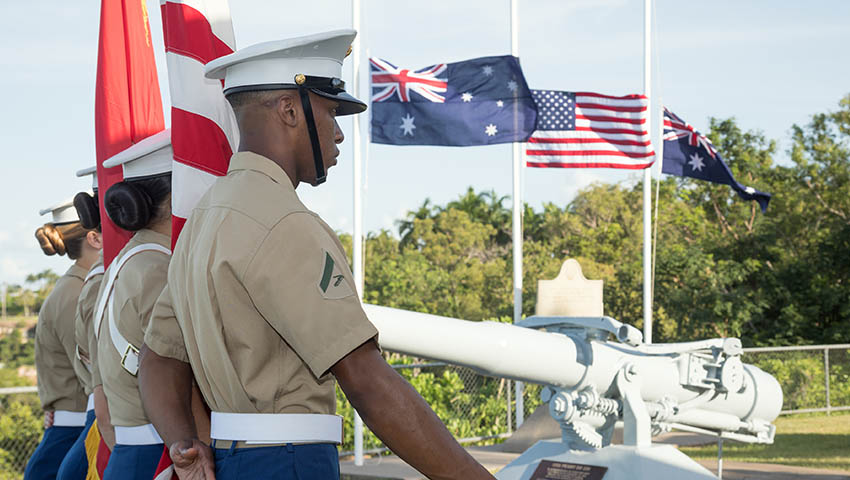Defence has welcomed the US Force Posture Initiatives (USFPI) Social and Economic Impact Study undertaken by KPMG, which showed that Defence’s presence in the Northern Territory injects an average of $700 million annually into the local economy.
To continue reading the rest of this article, please log in.
Create free account to get unlimited news articles and more!
The study confirmed the importance of Defence as an essential part of the fabric of the Darwin community as well as the long-term and significant contribution Defence makes to the economy of the NT.
Defence’s contribution constitutes around 2.8 per cent of the Territory’s gross state product, and includes wages and supplier expenses, operating costs and capital expenditure.
In addition to this sustained contribution, there will be an additional, short-term boost to the economy with a significant capital works program commencing in 2020 under the USFPI.
The study also examined the social impact of Defence and the USFPI in the NT, where Defence is considered to be an integral part the community.
The social impact assessment found that Australian Defence Force personnel are seen as part of the local community and that there is an overall positive sentiment regarding the USFPI, with a majority of respondents expressing strong support for their presence.
The USFPI have been contributing to the community through a range of engagement and outreach activities, such as providing assistance to the community following Cyclone Marcus, through to school visitation programs, which are warmly welcomed by the community.
Announced in November 2011, the USFPI are an extension of Australia’s existing Defence relationship with the US and support the nations' common interest in promoting regional security and stability.
Through the initiatives, Australia and the US are gaining new opportunities for combined training and improved interoperability between their armed forces. They also provide new opportunities for engagement with regional partners and position both nations to better respond to crises in the region.
The two initiatives are:
- Marine Rotational Force - Darwin (MRF-D): The MRF-D initiative involves the annual rotation of US Marines through northern Australia during the dry season. While in Australia, the MRF-D undertakes a range of activities, including training unilaterally and with the ADF and other Indo-Pacific nations’ forces.
- Enhanced Air Cooperation (EAC): The EAC initiative aims to strengthen bilateral collaboration and enhance interoperability through increased participation of US air elements, including fifth-generation strike fighters and strategic bombers in a range of training activities and exercises with the ADF.
There is a strong sense that the ADF has good relationships with the Indigenous community and that they can foster understanding with the USFPI regarding Indigenous land and culture.
Stephen Kuper
Steve has an extensive career across government, defence industry and advocacy, having previously worked for cabinet ministers at both Federal and State levels.

 Login
Login








